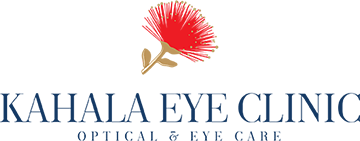
Dry Eye Treatment in Honolulu: Causes, Symptoms, and Long-Term Relief
If your eyes often feel dry, itchy, or like there’s something stuck in them, you’re not alone—and it may be more than just a passing irritation. These symptoms could indicate dry eye disease, a common but often overlooked condition that can significantly impact daily life and long-term vision health.
At Kahala Eye Clinic, we specialize in dry eye treatment in Honolulu, offering personalized care tailored to the needs of patients in Kahala, Hawaii Kai, Aina Haina, and the greater Honolulu area. Whether you're experiencing mild discomfort or chronic dryness, here's what you should know about this widespread ocular condition, and how we can help.
Dry Eye Treatment in Honolulu: Understanding Dry Eye Disease
Dry eye disease occurs when your eyes don’t produce enough tears or when your natural tears evaporate too quickly due to an unstable tear film. This tear film is made up of three crucial layers—water (aqueous to hydrate), lipid or oil (to prevent evaporation), and mucin (to stabilize). A disruption in any of these layers can result in dryness, irritation, and inflammation of the ocular surface.
Environmental factors affect the eyes by exacerbating dry eye symptoms. Factors such as wind, pollution, and dry air can worsen the condition, particularly for those already suffering from dry eye.
A leading cause of dry eye is meibomian gland dysfunction (MGD)—a condition where the oil glands along your eyelid margins become blocked or inflamed. Without the protective oil layer, your natural tears evaporate rapidly, leaving your eyes vulnerable to environmental stressors like wind, dry air, and pollution. This condition is often treated with medications such as MEIBO, lifestyle modifications, and eye lid treatments.
Aqueous deficiency can reduce tear volume and worsen symptoms. This condition is often treated with medications such as Restasis, Xiidra or punctal plugs. The lack of enough natural tears hampers the creation of a healthy tear film, leading to increased discomfort and persistent dry eye symptoms.
Understanding Dry Eye Disease
Common Symptoms of Dry Eye
Patients with dry eye disease typically report one or more of the following. Are you experiencing any of these symptoms?
A gritty or “foreign body” sensation
Redness, burning, red eyes, or itchy eyelids
Blurred or fluctuating vision
Excessive tearing (a reflex-tear response to dryness)
Difficulty wearing contact lenses
Eye discomfort, especially with screen use
Light sensitivity or discomfort in air-conditioned rooms
If left untreated, dry eye can damage the ocular surface, impact your vision, and reduce your quality of life. Various symptoms like stinging, burning, and tearing can significantly affect daily activities.
What Causes Dry Eye?
Dry eye disease can be triggered or worsened by various internal and external factors. Thorough examinations determine the causes of dry eye, such as:
Long hours on screens or digital devices
Aging or hormonal changes (especially in post-menopausal women)
Autoimmune conditions (e.g., rheumatoid arthritis and others)
Blepharitis (eyelid inflammation due to bacterial buildup)
Certain medications (like antihistamines or antidepressants)
LASIK surgery or eye injuries
Poor blinking habits and tear duct dysfunction
Various medical conditions (e.g., Sjogren's syndrome, diabetes, thyroid disease, glaucoma)
Climatic conditions such as windy, and sandy environments (e.g. Hawai'i)
In some cases, closing or blocking tear ducts (with temporary punctal plugs) may be recommended to help tears stay on the eye’s surface longer. But it is essential to address the underlying issues to achieve long-term treatment success.
Comprehensive Dry Eye Diagnosis in Honolulu
At Kahala Eye Clinic, scheduling an appointment is crucial for a thorough examination to address your dry eye symptoms effectively. Our eye doctor uses advanced diagnostic tools to evaluate the root cause of your dry eye symptoms. This includes examining:
Tear volume and quality
Lacrimal gland performance
Meibomian gland health
Eyelid function and hygiene
Your symptom history and environmental triggers
We believe in personalized treatment plans, and our approach ensures that each patient receives dry eye treatment, conveniently located in Honolulu, that is specific to their needs. Dry eye treatment is not just a generic treatment for all.
Treatment Options for Dry Eye in Honolulu
Our comprehensive approach to dry eye treatment may include:
Warm compress therapy to unclog oil glands and enhance eyelid hygiene
Prescription eye drops to reduce inflammation, increase tear production, and alleviate dry eye discomfort
Artificial tears for daily lubrication
Eyelid hygiene regimens to manage blepharitis and reduce bacteria
Omega-3 supplements to promote healthy tear film
Environmental adjustments, such as humidifier use or wearing protective eyewear
Punctal plugs to conserve tears on the eye surface
These treatments can enhance overall quality of life by improving vision health and providing effective solutions for dry eye symptoms.
Many patients notice symptom improvement within weeks, but dry eye requires long-term management.
Eye Treatment and Recovery
Treatment options for dry eye disease vary depending on the severity of the case. Artificial tears can help lubricate the eyes, provide moisture and wash away inflammation. Prescription medications, such as anti-inflammatory medications, can help reduce inflammation and promote tear production. Lifestyle changes, such as avoiding dry environments and taking regular breaks when using digital devices, can help alleviate dry eyes.
Recovery from dry eye treatment can vary depending on the individual patient’s needs and circumstances. Regular follow-up appointments with the eye doctor are essential for monitoring progress and adjusting treatment as needed. Dry eye treatment can help alleviate symptoms, improve vision and improve your quality of life.
Managing Dry Eyes at Home
While clinical treatments are important, at-home care also plays a vital role in managing dry eye symptoms. Here are some common tips:
Blink often, especially during screen use
Stay hydrated throughout the day
Wear wraparound sunglasses outdoors
Use quality artificial tears as needed
Avoid exposure to irritants like smoke
Keep eyelids clean using doctor-recommended scrubs
Avoid rubbing your eyes, which can worsen irritation
Use a humidifier, especially in dry or indoor climates
These small lifestyle shifts can make a difference in preventing dry eye and protecting your long-term eye health.
Brief FAQ: Dry Eye Treatment in Honolulu at Kahala Eye Clinic
Q: What is dry eye disease? A: It’s a chronic condition where the eyes either don’t produce enough tears or lose tears too quickly, leading to irritation, discomfort, and stinging.
Q: How is it diagnosed? A: Through a detailed eye exam that measures tear quality, gland function, and inflammation of the ocular surface.
Q: What treatments are available? A: We offer tailored treatment plans that may include prescription drops, warm compress therapy, eyelid hygiene, punctal plugs, and more.
Q: Can it be prevented? A: While not always preventable, symptoms can be managed through hydration, proper blinking, eyelid hygiene, medication use, in-clinic treatments and minimizing environmental stress.
Q: Is it permanent? A: Dry eye disease is often chronic, but with the right treatment, most patients find lasting relief and improved comfort. It affects millions of lives, making professional treatment essential to avoid further complications.
Why Choose Kahala Eye Clinic for Dry Eye Treatment in Honolulu?
We provide more than a diagnosis—we deliver compassionate, comprehensive care for every stage of your dry eye journey. Untreated dry eye can lead to serious complications, including permanent damage to the eyes and significant harm to the eyelids. Our goal is to improve not just your symptoms, but your quality of life.
Prescription medications like Restasis and Xiidra help support the production of more tears to alleviate dry eye symptoms.
Whether you’re new to Honolulu or have lived here for years, we’re honored to be your trusted eye care partner.
Ready to Find Relief?
If you’re struggling with dry eye symptoms, it’s time to take the first step toward clearer, more comfortable vision. Schedule an appointment for a consultation at Kahala Eye Clinic today and explore your options for dry eye treatment in Honolulu.
Your vision deserves the best—and so do you.




